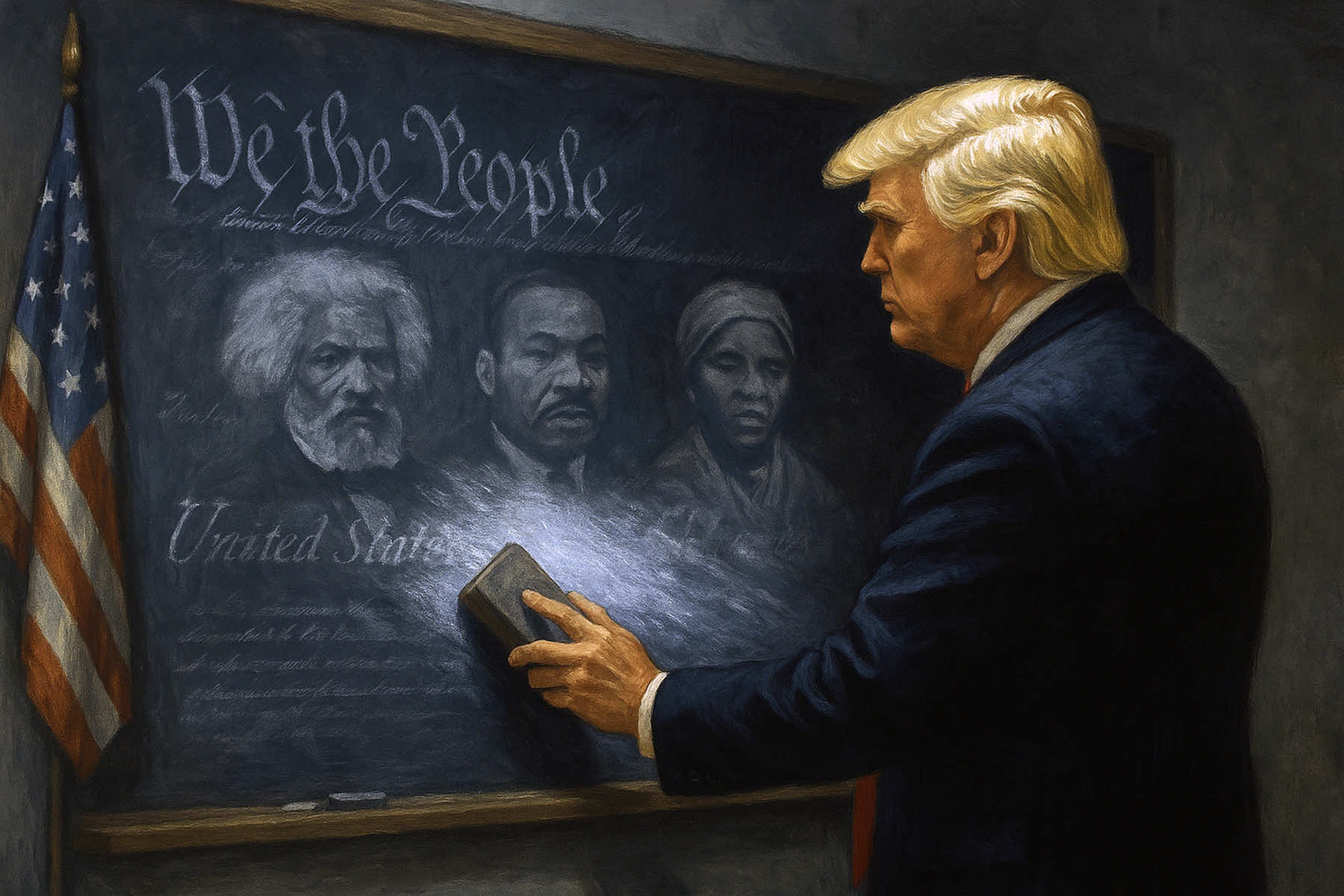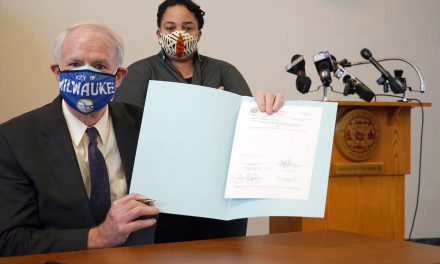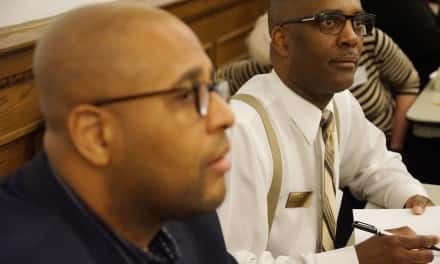
Four years after it was quietly released in the final days of Donald Trump’s first term, a little-known White House document, the “1776 Report,” has reemerged as a central ideological guidepost for the president’s second-term push to reshape public education, censor academic institutions, and reframe American history through a nationalist lens.
Originally issued on January 18, 2021, by the short-lived “President’s Advisory 1776 Commission,” the 45-page report was meant to offer a false counter-narrative to the Pulitzer-winning “1619 Project” by “The New York Times,” which coincided with a broader reckoning over systemic racism following the murder of George Floyd.
But rather than fading into obscurity, the 1776 Report has continued to quietly inform a sustained campaign to sanitize America’s founding, cast race-conscious scholarship as subversive, and elevate a version of national identity rooted in selective memory and political utility.
The document, written with no professional historians and widely condemned by academics at the time, has become one of Trump’s most enduring cultural weapons — not despite its controversy, but because of it.
“To remain a free people, we must have the knowledge, strength, and virtue of a free people. From families and schools to popular culture and public policy, we must teach our founding principles and the character necessary to live out those principles.” – The 1776 Report
FOUNDING MYTHS OVER FACTS
At its core, the 1776 Report aims to reset the historical clock. It insists that the only legitimate interpretation of America’s past is one that centers the Declaration of Independence as the founding’s moral pinnacle. It offers the “all men are created equal” statement as proof that the United States was born free, even as slavery was legally protected in its Constitution.
The report portrays slavery as a regrettable but routine global institution, downplaying its uniquely American entrenchment. It frames abolition as a natural consequence of the nation’s founding ideals, not as the result of generations of struggle, war, and civil disobedience. Jefferson, Washington, and other enslavers are depicted as reluctant participants in a system they supposedly hoped to dismantle from within.
To Trump’s advisers and their ideological allies, this reframing serves a strategic purpose: it treats any narrative that highlights racial injustice, inequality, or hypocrisy in America’s founding as not only inaccurate, but dangerous.
“The most common charge leveled against the founders, and hence against our country itself, is that they were hypocrites who didn’t believe in their stated principles, and therefore the country they built rests on a lie. This charge is untrue, and has done enormous damage, especially in recent years, with a devastating effect on our civic unity and social fabric. Many Americans labor under the illusion that slavery was somehow a uniquely American evil. It is essential to insist at the outset that the institution be seen in a much broader perspective. It is very hard for people brought up in the comforts of modern America, in a time in which the idea that all human beings have inviolable rights and inherent dignity is almost taken for granted, to imagine the cruelties and enormities that were endemic in earlier times. But the unfortunate fact is that the institution of slavery has been more the rule than the exception throughout human history.” – The 1776 Report
A BACKLASH TURNED BLUEPRINT
Though critics largely dismissed the report upon release, with the American Historical Association calling it “a cynical political document,” Trump’s reelection and return to executive power has brought its message back into federal policymaking.
A newly reconstituted version of the 1776 Commission, now embedded within the White House Domestic Policy Council, has quietly advised ongoing Department of Education reforms. Internal memos reviewed by federal staff indicate that portions of the report’s language, including warnings against “identity politics” and “group rights,” are being used to guide grant eligibility, textbook content reviews, and civics education pilot programs.
Much of this effort is bureaucratic and opaque, occurring through rules and guidance instead of legislation. But the philosophical intent is explicit.
“Students in our universities are inundated with critical race theory. This is a Marxist doctrine holding that America is a wicked and racist nation, that even young children are complicit in oppression, and that our entire society must be radically transformed. Critical race theory is being forced into our children’s schools, it’s being imposed into workplace trainings, and it’s being deployed to rip apart friends, neighbors, and families.” – Remarks by Trump at the White House Conference on American History (September 17, 2020)
WHITE NATIONALISM THROUGH MORAL EXCEPTIONALISM
While the 1776 Report never uses terms like “White Nationalism,” its ideological structure leans heavily on themes that resonate with modern reactionary movements: the glorification of America’s origins, distrust of pluralism, and fear of social transformation.
The document attacks progressivism as a historical mistake, argues that identity-based politics are incompatible with the Constitution, and presents the Civil Rights movement as having “devolved” after the 1960s into a program of racial favoritism.
In doing so, it frames affirmative action, anti-racist curricula, and social equity efforts as un-American. In Appendix III, the report goes further:
“Identity politics values people by characteristics like race, sex, and sexual orientation and holds that new times demand new rights to replace the old. This is the opposite of King’s hope that his children would “live in a nation where they will not be judged by the color of their skin but by the content of their character,” and denies that all are endowed with the unalienable rights to life, liberty, and the pursuit of happiness. Identity politics makes it less likely that racial reconciliation and healing can be attained by pursuing Martin Luther King, Jr.’s dream for America and upholding the highest ideals of our Constitution and our Declaration of Independence.” – The 1776 Report
This rhetorical pivot, from inclusion to division, has given Trump a language to portray racial equity as moral decay. Under the guise of national renewal, it offers a path for entrenching race-blind policies that ultimately reinforce historical power structures.
“We will state the truth in full, without apology: We declare that the United States of America is the most just and exceptional Nation ever to exist on Earth.” – Fact Sheet: Donald J. Trump Is Protecting America’s Founding Ideals by Promoting Patriotic Education (November 2, 2020)
What the 1776 Report attempts is not simply a reinterpretation of historical facts, but a reassertion of moral authority. It is one that centers the founders’ intent as pure, their contradictions as excusable, and their critics as a threat to national unity. This approach has become a powerful tool in Trump’s broader effort to define Americanness as loyalty to a specific civic mythology, rather than engagement with democratic pluralism.
To achieve this, the report equates dissent with danger. It links contemporary critiques of American institutions with historical enemies, drawing direct comparisons between communism, fascism, identity politics, and what it describes as “radical” social movements.
In doing so, it flattens the distinctions between ideologies and tactics in order to cast all opposition as equally illegitimate.
“More problematic have been movements that reject the fundamental truths of the Declaration of Independence and seek to destroy our constitutional order. The arguments, tactics, and names of these movements have changed, and the magnitude of the challenge has varied, yet they are all united by adherence to the same falsehood — that people do not have equal worth and equal rights.” – The 1776 Report
This rhetorical framing lays the foundation for policy aimed not at expanding rights, but at limiting them — especially for groups whose demands challenge historical norms. In Trump’s second term, the legacy of this framework can be seen in restrictions on diversity initiatives, funding threats to universities accused of “anti-American bias,” and the elevation of a new, state-sanctioned narrative in federally funded education programs.
ACADEMIC INDEPENDENCE UNDER SIEGE
Since January, the administration has proposed new rules under the Department of Education that would tie grant approvals to what it calls “civics alignment.” According to draft guidance obtained by education watchdogs, programs will be evaluated based on their adherence to principles “consistent with the Declaration and Constitution, as understood by the Founders.” Language from the 1776 Report appears verbatim in the appendices of the guidance.
Historians warn that this approach weaponizes federal funding against academic freedom. It effectively penalizes critical scholarship, restricts nuanced engagement with the past, and incentivizes schools to adopt a state-approved version of American exceptionalism.
Despite lacking any citations or original research, the 1776 Report has become a de facto doctrinal text, one that elevates reverence above inquiry and frames skepticism as disloyalty.
“Above all, we must stand up to the petty tyrants in every sphere who demand that we speak only of America’s sins while denying her greatness. At home, in school, at the workplace, and in the world, it is the people — and only the people — who have the power to stand up for America and defend our way of life.” – The 1776 Report
A LEGACY OF FORGETTING
Though few Americans remember the 1776 Commission by name, its themes have found new life in state-level legislation, local school board fights, and media campaigns that depict public education as an ideological battleground. The phrase “patriotic education” has since appeared in Republican policy platforms across more than 20 states, with model legislation echoing the report’s arguments against “divisive concepts.”
Even conservative-leaning think tanks and Christian school networks have embraced the document’s moral framing. Hillsdale College, whose president chaired the original commission, has launched a nationwide curriculum initiative built around the same founding narrative. Several former commission members now serve as education consultants to GOP-led states.
For Trump, the goal is not just to win elections, but to reshape the national memory in the same way Mao Zedong did during the Cultural Revolution — by controlling how history is taught, what narratives are promoted, and which perspectives are systematically erased from public consciousness.
The 1776 Report’s revival also illustrates a deeper strategy: not merely to control how history is taught, but to define what truths are permissible in the American imagination. It positions the state as the arbiter of legitimacy in historical discourse, inverting the democratic premise that knowledge should be shaped by evidence, inquiry, and dissent.
What began as a last-minute report in the twilight of a failed presidency has become a touchstone in its second act, a quiet engine driving a cultural counterrevolution from inside the halls of power.
And in Trump’s Washington, forgetting may be the point.
© Image
ChatGPT/Dall-E















